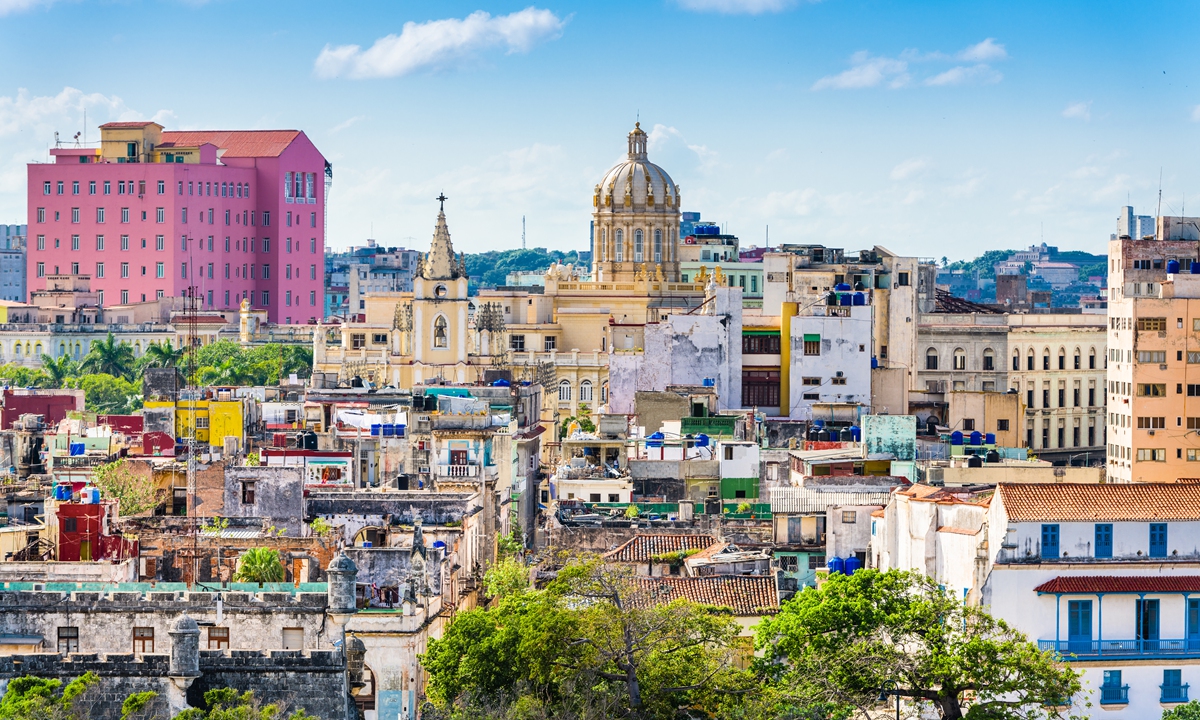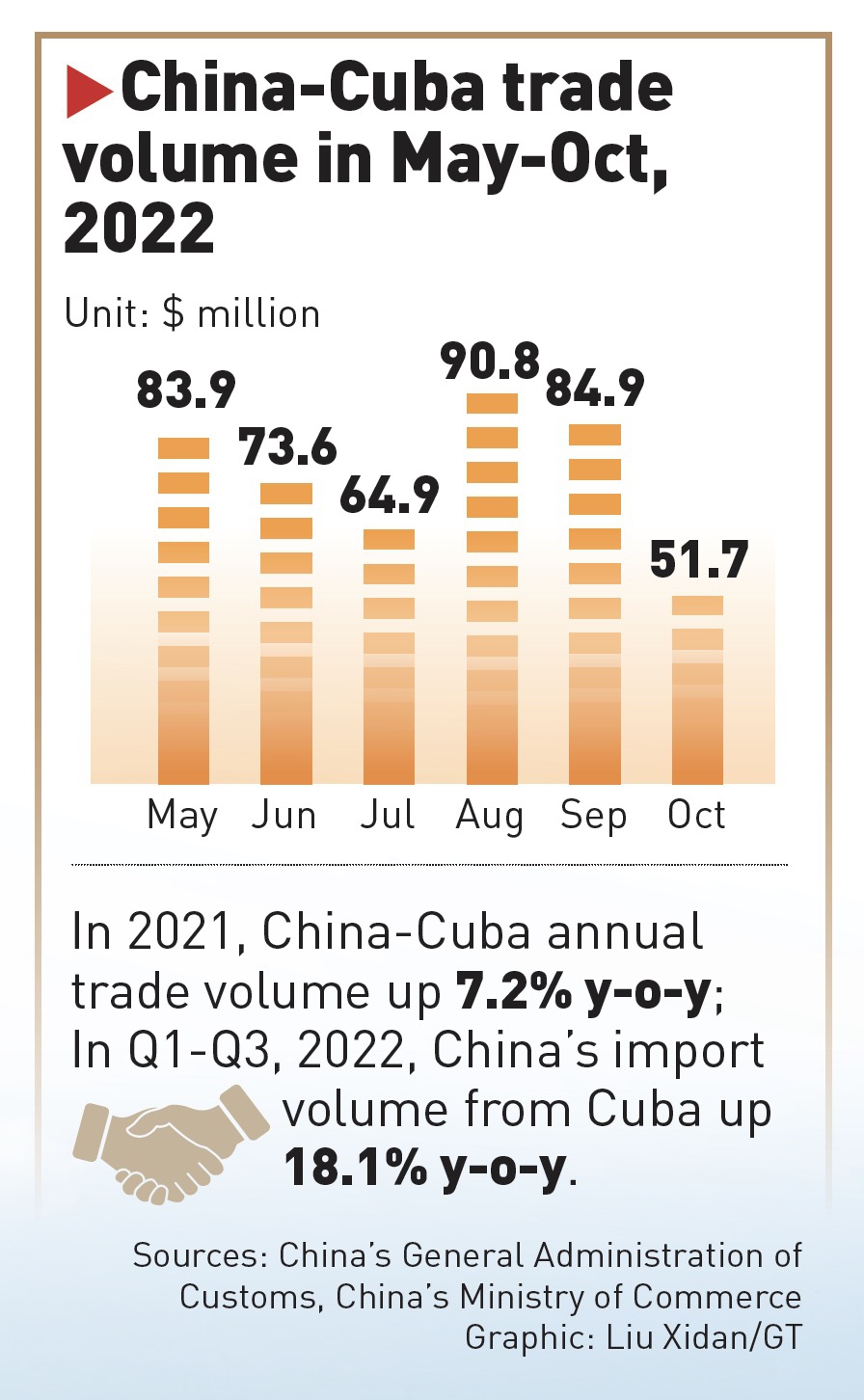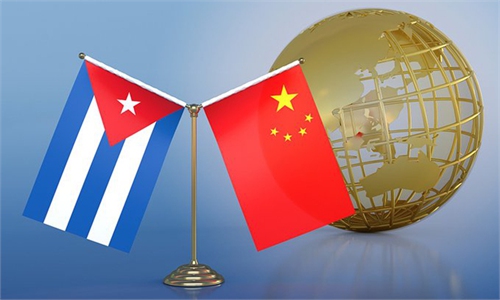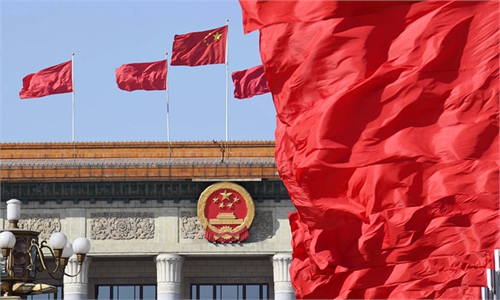China-Cuba relations to tap in more collaboration in green, health and digital areas under BRI: experts
Top meeting to extend cooperation in health, energy and infrastructure under BRI

City view of Havana, capital of Cuba Photo: VCG
China-Cuba ties, a time-honored friendship, face a new historic chapter, with the state visit of Miguel Díaz-Canel, First Secretary of the Central Committee of the Communist Party of Cuba and Cuban President, to China from Thursday to Saturday, the first Latin American and Caribbean head of state received by China after the 20th National Congress of the Communist Party of China.Under the global background of continuous epidemic and economic downturn, how China and Cuba will further plan the development of cooperation between the two sides is the highlight of the Cuban leader's visit, experts said.
In the wake of the great international changes amid rising unilateralism, high inflation, geopolitical conflicts and the ongoing epidemic, the meeting of the two heads of state will inject new impetus into the development of China-Cuba relations, sending clear message of the determination for a closer tie on both sides, with the cooperation in sustainable areas such as green development, health and digital fields where the two countries are highly complementarity to be expected, experts said.
China-Cuba pragmatic cooperation is realizing all-round development, with China being one of Cuba's major trading partners and has played an active role in Cuba's economic and social development, according to the Chinese Embassy in Cuba.
Cuba is the first Latin American country to establish diplomatic relations with China, and has long been at the forefront of Latin American countries in developing relations with China.
The two sides are steadily promoting projects in key fields such as infrastructure, technology, agriculture, tourism, energy, communications and biotechnology, demonstrating the huge potential of China-Cuba "Belt and Road" cooperation, experts said.
Fight against the odds
Chinese investors have been a strong player for Cuba's economic and social development. Chinese-funded enterprises stationed in Cuba are involved in communications, tourism, transportation, oil, infrastructure and other fields, covering a wide range of industries and scopes.
However, the long-arm jurisdiction of the US, which seriously interferes with Cuba's right to carry out normal economic, trade and financial cooperation with third parties, and excludes Cuba from the international financial system, remains the biggest challenge for the normal development of the Caribbean country, Yan Jin, assistant research fellow at the Institute of Latin American Studies, China Institutes of Contemporary International Relations, told the Global Times on Wednesday.
Affected by the international environment, the Cuban government has halved its economic growth forecast for this year, from 4 to 2 percent. Other issues such as the tightened energy supply have also weighed on the country's economy.
In fighting against the odds, the introduction of foreign capital and the strengthening of infrastructure construction has become the key links to promote the development of pillar industries in which China can play its part, experts said.
"Cuba's domestic infrastructure is still very weak, and the supporting capacity of domestic industries is not strong, with both the number and structure of the labor force may not be able to meet the needs of large-scale investment, which is where Chinese companies can maximize their strengths," Zhang Jieyu, assistant research fellow at Department for Latin American and Caribbean Studies, China Institute of International Studies, told the Global Times on Wednesday.
Such cooperation in infrastructure has already made a difference on the ground.
For example, Cuban Port of Santiago Multi-Purpose Wharf Project undertaken by Chinese company, which was completed in June 2019, marked the first Cuban engineering project that involved a Chinese company, according to the State-owned Assets Supervision and Administration Commission of the State Council.
The multi-purpose wharf project is a general contracting framework project aided by the Chinese government, with the total contract value of $120 million.
Despite the US long-arm jurisdiction and embargo over Cuba, which has inevitably posed challenges such as financial difficulties and material shortages to the normal cooperation of Chinese enterprises in Cuba, this infrastructure project was completed, meeting high-quality standards while driving up the industry development in the region and increasing local employment opportunities.
China's support for Cuba is also reflected in the energy and more urgent areas of people's livelihood as the country is dealing with tightened energy supply. One recent example is a shipment of aid including 5,000 sets of China-made household solar photovoltaic power generation systems and 25,000 sets of LED lamps provided by China's Ministry of Ecology and Environment, which was handed over to the Cuban side in May.
These materials aided by the Chinese government have then been distributed and installed by the Cuban government to rural families in remote areas outside the coverage of the power grid to help the local people meet some of their basic electricity and lighting needs.

Graphic: Liu Xidan/GT
Prospects are promising
While the high-level visit of the Cuban leader to China injects new momentum in bilateral relations, more cooperation can be done, especially under the joint construction of the Belt and Road Initiative (BRI), which has played an important role in the world economic recovery, experts said.
In 2018, China and Cuba signed a memorandum of understanding to jointly promote the construction of the BRI. Three years later both sides signed a cooperation plan to jointly promote the "Belt and Road" construction, which further clarified the direction and key areas of cooperation.
The prospects for bilateral cooperation in wide fields such as electronics, machinery manufacturing, textiles, energy, agriculture, information and communication, infrastructure construction, genetic engineering, medical and health are promising, especially the "Health Silk Road" and the construction of the "Digital Silk Road" - both holding great potential in future cooperation, Zhang said.
Among all the possibilities, green and digital transformation, the main direction of global economic development in the future, can be strengthened as countries seeking new and sustainable development paths, the expert said.
By 2030, 37 percent of Cuba's energy supplies will come from renewable energy sources, according to Cuban National Development Plan, which Yan said that China can play its role in helping the country with the energy transition as a global industry leader in new-energy field such as photovoltaic power generation.
Against the backdrop of repeated COVID-19 epidemic, China-Cuba cooperation in the fields of vaccine development and clinical trials has made some progress, another field that is expected to find more possibilities for cooperation, experts said.
China is Cuba's largest trading partner in goods, and Cuba is China's second largest trading partner in the Caribbean region, and has become an active practitioner in BRI and the Global Development Initiatives, with the two countries having extensive cooperation in fields such as agriculture, renewable energy, biopharmaceuticals, information and communication, tourism, and infrastructure, Chinese Ministry of Commerce spokesperson Shu Jueting told a press conference on Thursday.
In 2021, the bilateral trade volume between China and Cuba increased by 7.2 percent year-on-year. In the first three quarters of this year, bilateral trade continued to grow, and China's imports from Cuba even achieved an increase of 18.1 percent year-on-year.
Chinese Foreign Ministry Spokesperson Mao Ning told a press conference on Monday ahead of Cuban leader's visit that China and Cuba are each other's good friends, good comrades and good brothers who trust each other and share common goals.
"We are confident that President Díaz-Canel's visit will inject new impetus into the development of China-Cuba relations and boost new progress in our traditional friendship and friendly cooperation," Mao said.



